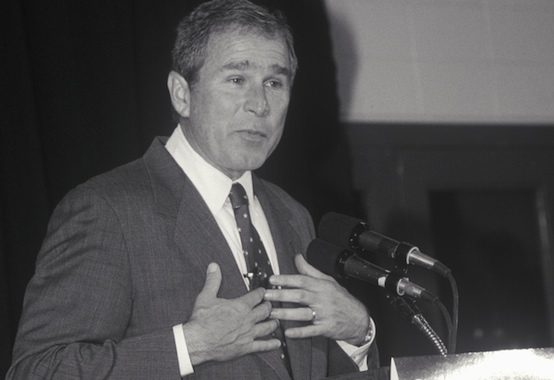Foreign Policy and the ‘Good Instincts’ Trap

Many presidential candidates have little or no foreign policy experience before the campaign begins, and some have even less specific knowledge about the relevant issues. This is an obvious liability for these candidates, and their supporters frequently resort to the same argument to deflect attention from it: “He may not know the issues that well, but he has good instincts.” The “good instincts” defense makes a certain amount of sense at first glance, but it always proves to be woefully inadequate. When supporters can’t argue that the candidate knows what he’s doing or what he’s talking about, they have to use this defense in lieu of being able to make a positive case that the candidate is at least somewhat prepared for the position he’s seeking.
We heard the “good instincts” argument a lot during then-Gov. George W. Bush’s 2000 campaign. Bush didn’t know much about foreign policy, he didn’t seem terribly interested in learning more, and there wasn’t much of an effort to pretend that he did. But we were told that he had the right instincts, and would in any case be surrounded by very knowledgeable people. He mouthed some sensible-sounding phrases during the campaign, but the truth was that his instincts were actually quite bad and the people around Bush encouraged him in his worst hawkish instincts.
The “good instincts” defense usually relies on cherry-picking statements that a candidate has made that supporters like while explaining away all of the others that they don’t. As it turned out, Bush’s preference for unilateralism and his disdain for international agreements were far more reliable indicators of how he would govern than the “humble” approach he professed to favor, and his lack of experience and knowledge proved to be much more important in producing bad policy decisions than most people probably thought possible before he was elected. Another problem with this argument is that it makes the candidate’s superficial public persona more important than his actual record (or lack thereof).
The biggest problem with the “good instincts” argument is that it lets the candidate off the hook for his lack of knowledge, which is treated as a minor weakness that can be easily remedied instead of the serious flaw that it really is. It intentionally lowers the standard by which a candidate is judged, and it gives him a pass for his ignorance that would normally be considered disqualifying in any other field. That not only encourages the candidate in question to try to get by with the bare minimum of preparation, but it also tells aspiring future candidates that they don’t need to bother with learning the issues in any depth. That may well work as a campaign tactic, but it practically guarantees poor policy decisions in the future.
Comments